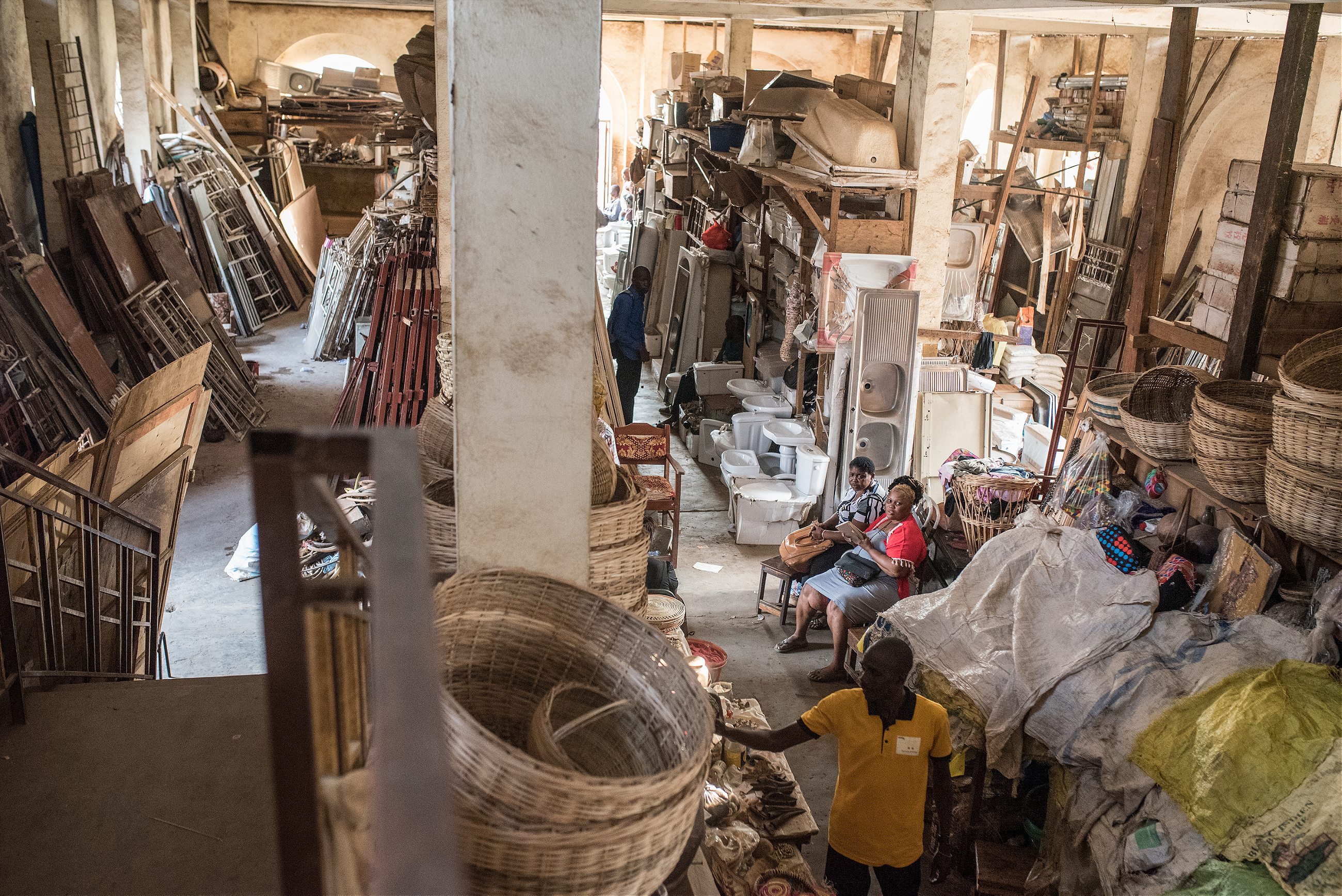How to get around, how to dress, and how to eat mangoes: a guide to Sierra Leone’s capital city.

Arrive by sea. Lungi International, Freetown’s airport, is across a sea estuary from Freetown. You can go the long way round over land, but the quickest and safest airport transfer is by boat. For US$40, the Sea Coach or the Sea Bird will carry you and your bags to Freetown’s west end, covering the 17-mile distance in under half an hour. The Sea Coach offers free Wi-Fi and a bottle of water, as well as ‘soothing music’ (Celine Dion is a popular choice). Alternatives include a government-run ferry or a long drive—but shell out for the speedboat for the convenience, and to enjoy the city’s mountainous backdrop.

Find your bearings with the Cotton Tree. In Freetown’s center stands a huge tree, around which early settlers gathered to give thanks on their arrival. Major streets and buildings—the Law Courts, State House, the oldest settler church, the central bank and King’s Yard, which now houses the main hospital—can all be geolocated in relation to the Cotton Tree. Even after independence in 1961, some streets, hillsides, and peninsular villages still have British names, though local pronunciations have evolved: Waterloo and Berwick have become ‘Wa-ta-low’ and ‘Ba-wick’. If you do get lost, never fear, because the residents love to help out, whether you ask or not.
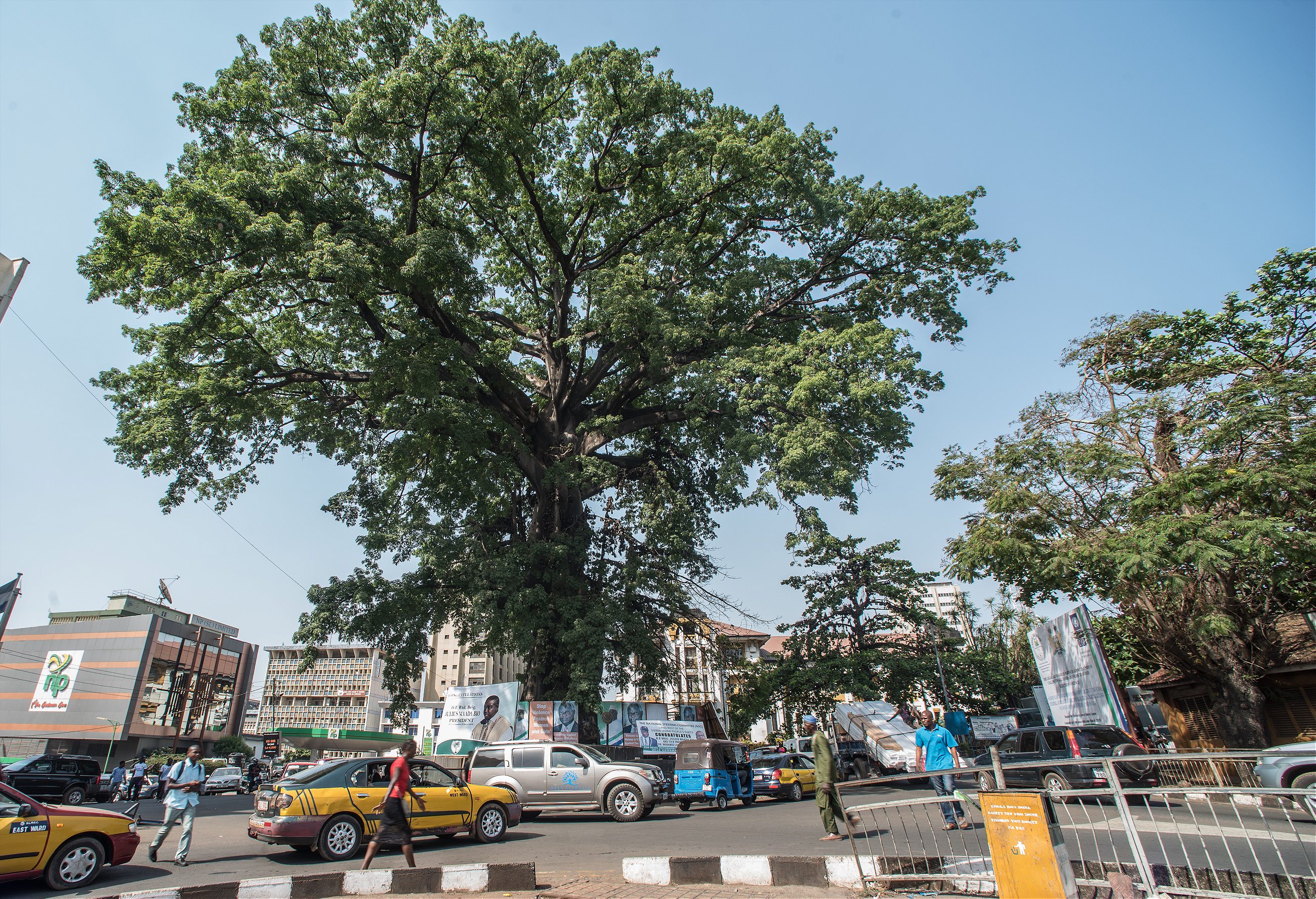

Know your seasons. Avoid Freetown in August, when the city receives a deluge of rain, causing widespread flooding. In 2017, a mudslide claimed the lives of over 1,000 residents. By December, the city is caked in a light covering of dust as the Harmattan winds bring sand from the Sahara. The best time to visit is early in the year January through to March, but be aware that temperatures can reach 40 degrees Celsius (104 Fahrenheit) and higher as the dry seasons peak in late March and April.

Learn the language of mangoes. In April and May, mangoes are sold individually or in heaps, on street pavements or from the heads of roving vendors. The mangoes come in many shapes, sizes, and colors, and they grow everywhere, some starting off as discarded seeds. Know the names of the most common varieties and how to eat them: The super-fleshy Guinea mango (the type found in many supermarkets abroad) and the Big Cherry variety can be sliced and diced; the fibrous laberu and rope-rope kind are meant to be massaged until soft, coaxed to give up their juice. Bite a hole in the bottom of the mango (or its “chin”) and suck out the juice.
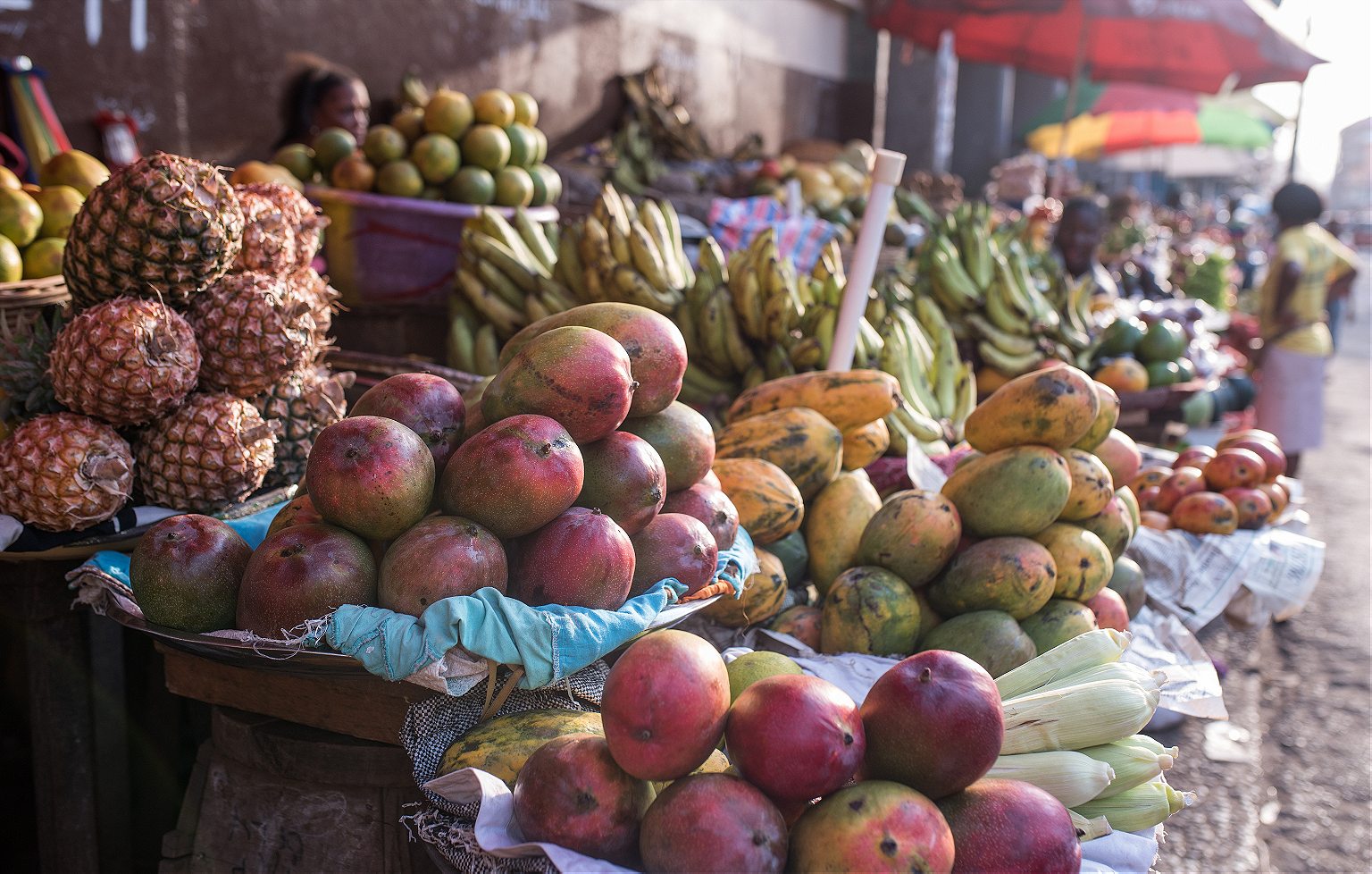

Talk small-small Krio. Ow di bɔdi? Yu wan fɔ it rɛs? [“How de body? You want for eat rice?”]. English is Sierra Leone’s official language, but if you can answer appropriately to “how’re you doing” or whether you’d like some rice, then Freetonians will be pleased that you took time to learn some Krio, and that you speak the language “smɔl- smɔl” [“small-small”]—just a little.

Learn some history. Freetown is so named for a reason. Land bought from local Themne chiefs in the late 18th century became the new home for resettled freed slaves from Britain and North America, and of ‘recaptives’ taken off seized slave ships on the Atlantic after Britain passed the 1807 Abolition of the Slave Trade Act. To learn more about this period of the country’s history, take a short boat ride out to Bunce Island with a guide for a sobering tour. The island was the final point of departure for many West Africans who had been sold into slavery across the Americas.
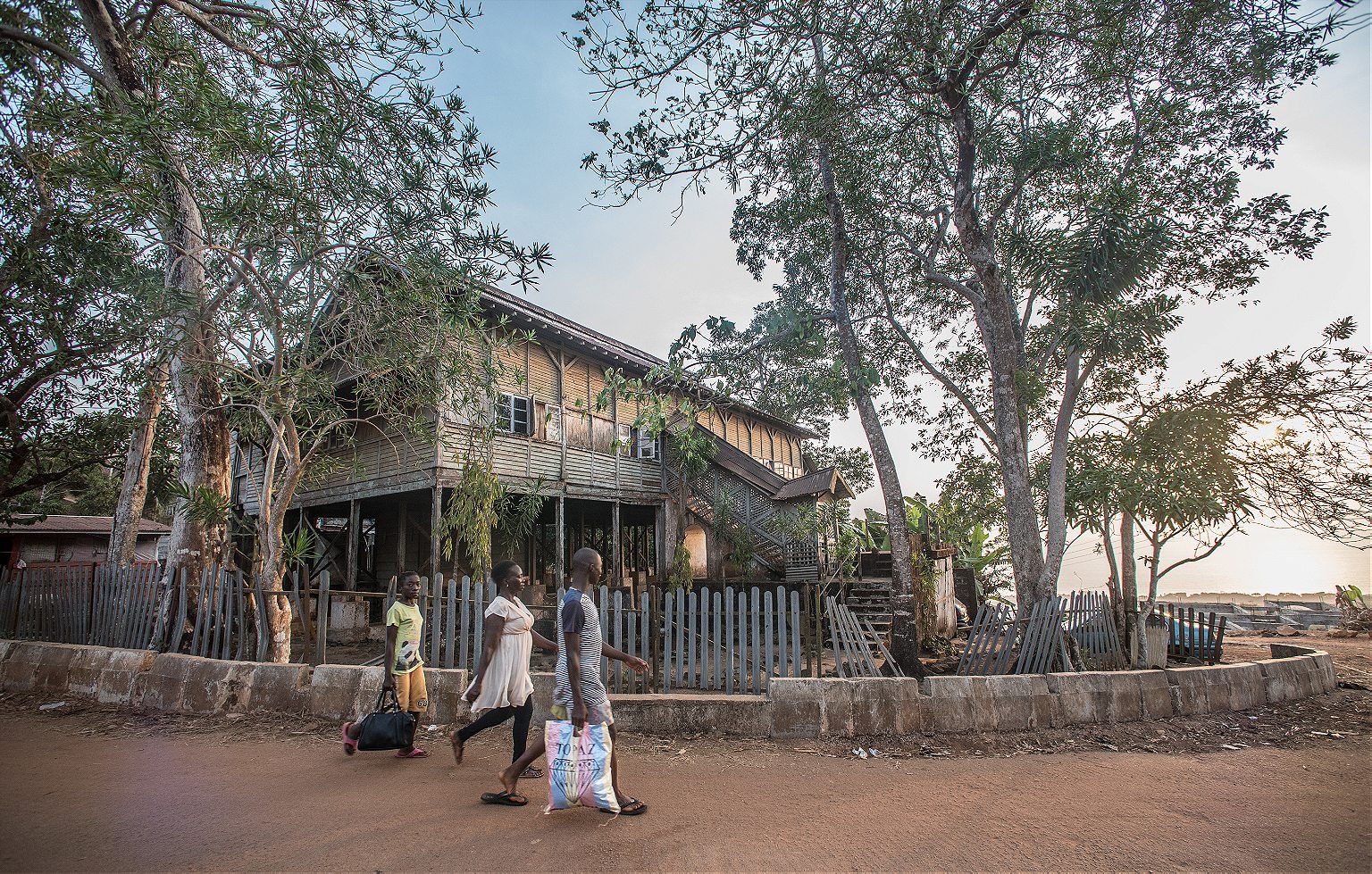

View the city from above. Stand 548 meters (1800 feet) above sea level among radio and television masts on Leicester Peak to get the best views of the city, tumbling down to the Sierra Leone River and its many inlets and creeks around the peninsula. From up high, you can observe the results of a recent obsession with red sheets of aluminum capping many new constructions. A few green, blue, as well as old, rusted zinc sheets peeping through clumps of trees with slices of red earth in-between complete the color palette.
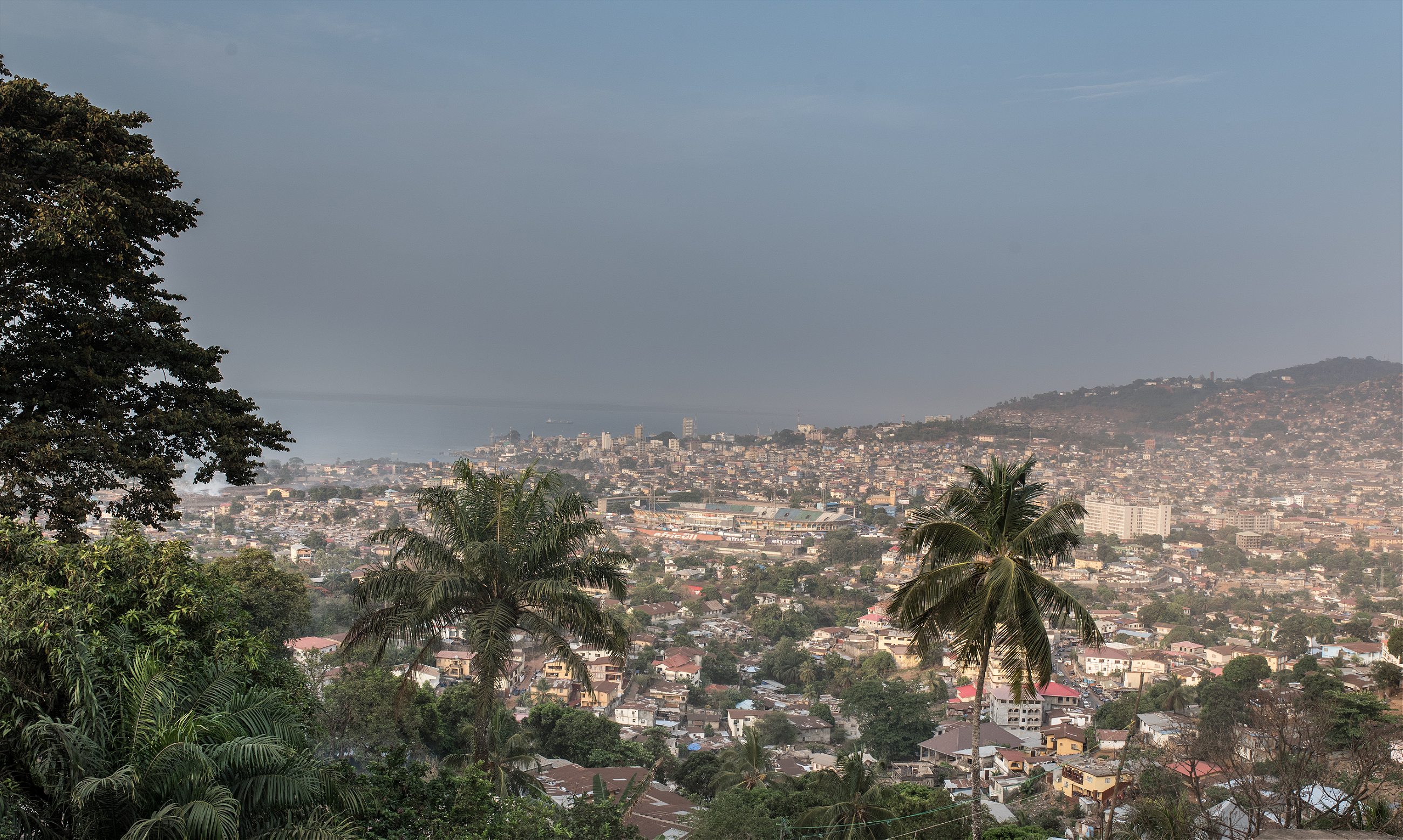

Rice is food. Don’t say you have eaten food unless you have had rice; fruit and eggs for breakfast don’t count. Know your plasas—leaf-based stews—cooked with chili, onions, and palm oil. All come with rice. Many favor the cassava leaves dish, but we like the potato leaves version. Other rice accompaniments include binch (beans) and the ‘national anthem’, groundnut soup—so nicknamed because everyone knows it and knows how to cook it. Most come with the option of meat or fish. Freetown is a city on the ocean, so try the fish. Balmaya, on Main Motor Cross Road, or nearby Tessa’s, on Wilkinson Road, offer excellent local dishes in a pleasant setting. Or visit a streetside joint, where a plate of rice and plasas will be yours for under 5,000 leones (65 cents). Our favorite is on Upper Kandeh drive.
[Read: 18 Things Know Before You Go to Lagos]

Drink sundowners on the beach. Nothing is better after a long day exploring the city than relaxing with a cold beer in hand as the sun sets into the Atlantic Ocean. Atlantic Bar used to be our favorite beach spot, but since it closed down, Bar 232 is the place to go, and is one of the only places where you can get Star, the locally brewed lager, on draught. Order one, kick off your shoes and marvel as the sun sinks into the ocean.
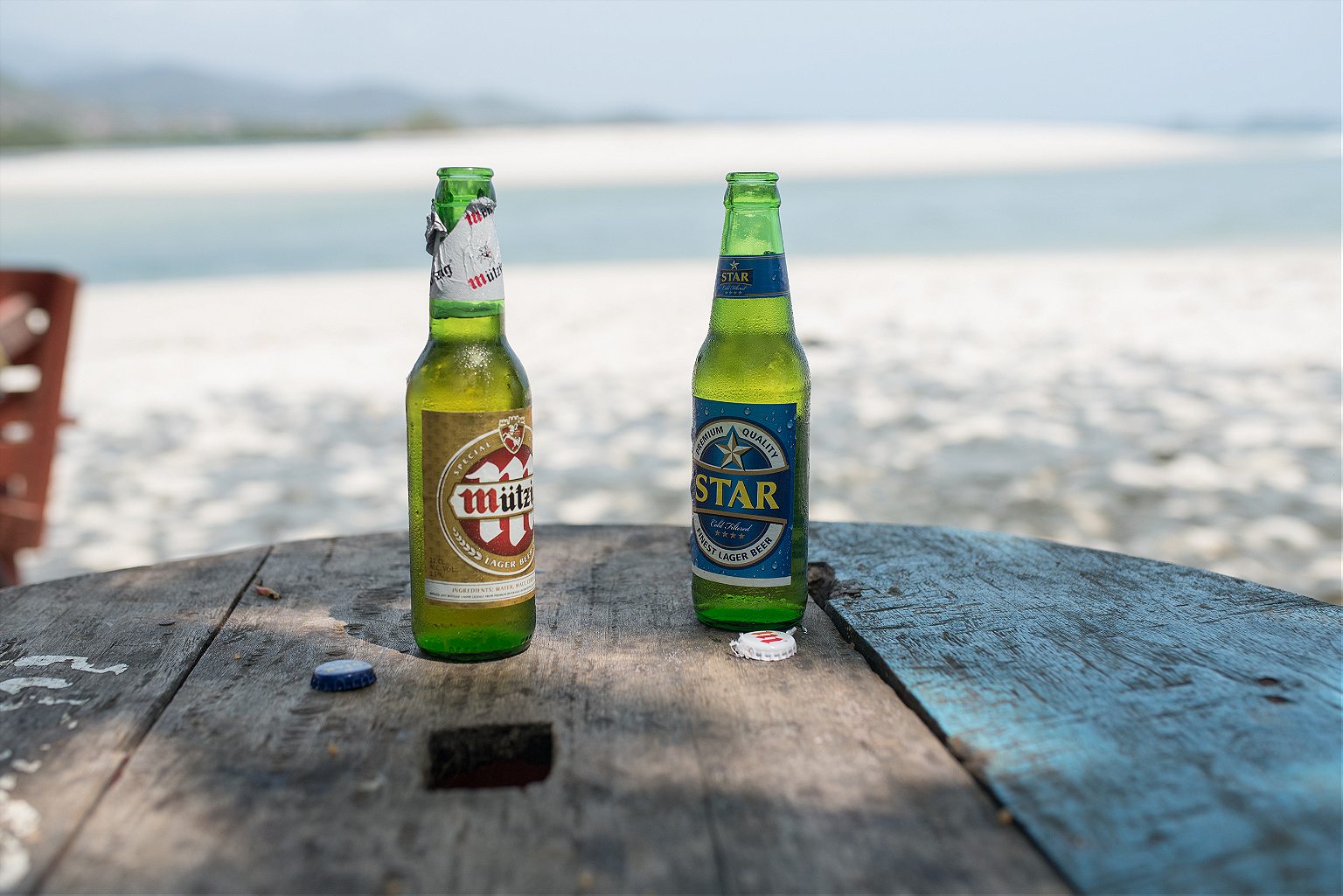

Try some street treats. In addition to cassava and corn roasted and sold off the grill on roadsides, vendors sell many other types of street food. Porcheh, toasted, parboiled rice, is sold in little packs and eaten as is, or as cereal. Or you can buy little bags of roasted groundnuts (peanuts) or plump cashew nuts from the vendors weaving in and out of the city’s notorious traffic jams. Try the king driver—also known as kill driver, depending on who you ask—a boat-shaped butter cookie, or some sticky groundnut brittle, crunchy coconut cakes, or sesame sticks.
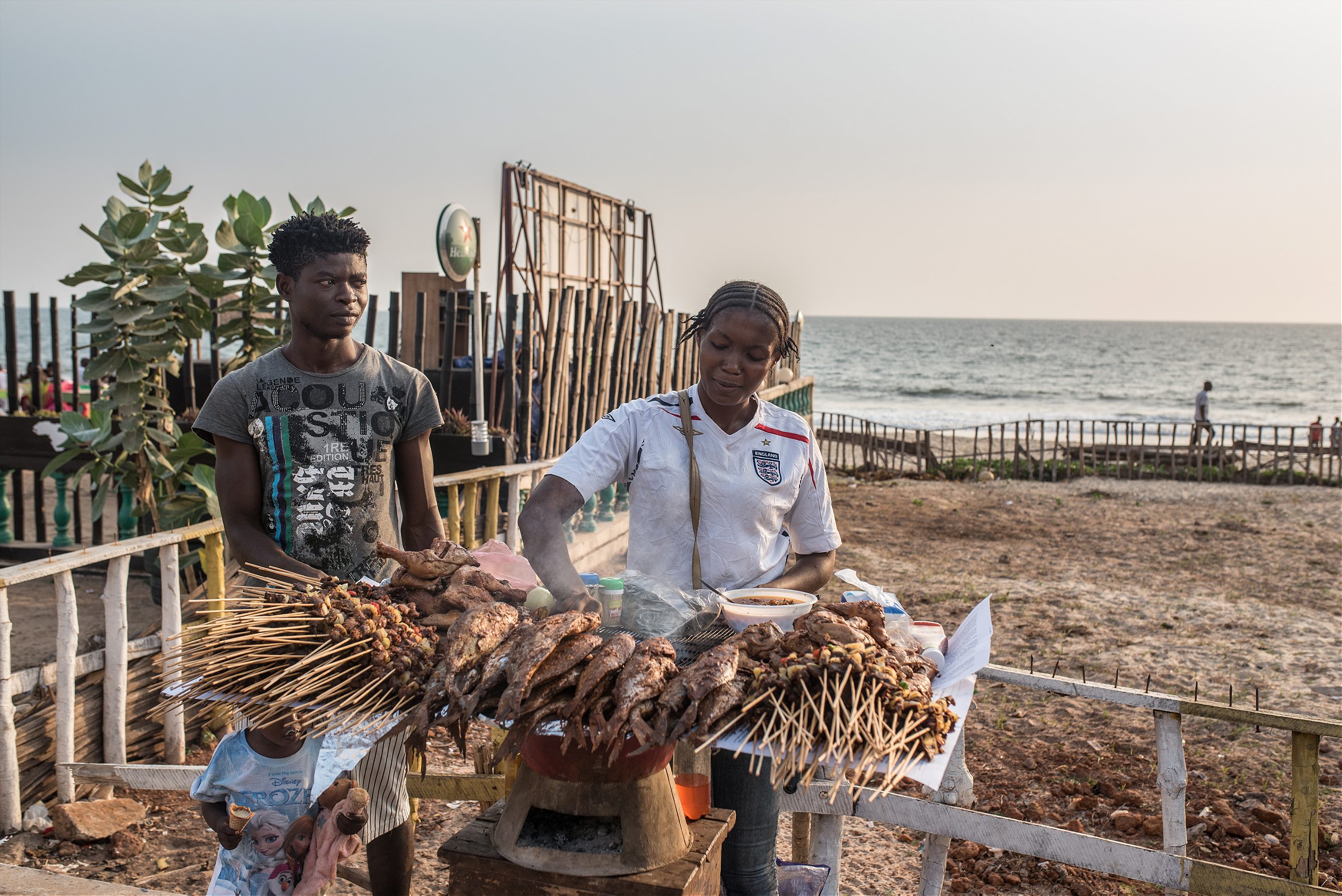

Dress up for Friday. Take a trip down to Malamah-Thomas Street—named after a wealthy Krio merchant who built a grand home there—to buy wax prints (called kɔtin, after cotton), lace, damask and more in every hue, pattern, and shimmer imaginable. A quick tip: most sellers, usually women, carry the same inventory, but it’s the buyer’s staying power in the haggling game that determines where the sale is made. Choose a fabric and select the number of yards needed (the metric system has not arrived in this bazaar yet). Now you need it made into a dress or shirt: no problem, there’s a tailor for that. You can find them all over the city (try the one at 2 Henry Street). Be part of the in-crowd on what is known here as Africana Fridays, when almost everyone wears their finest Africana threads to work or to mosque.
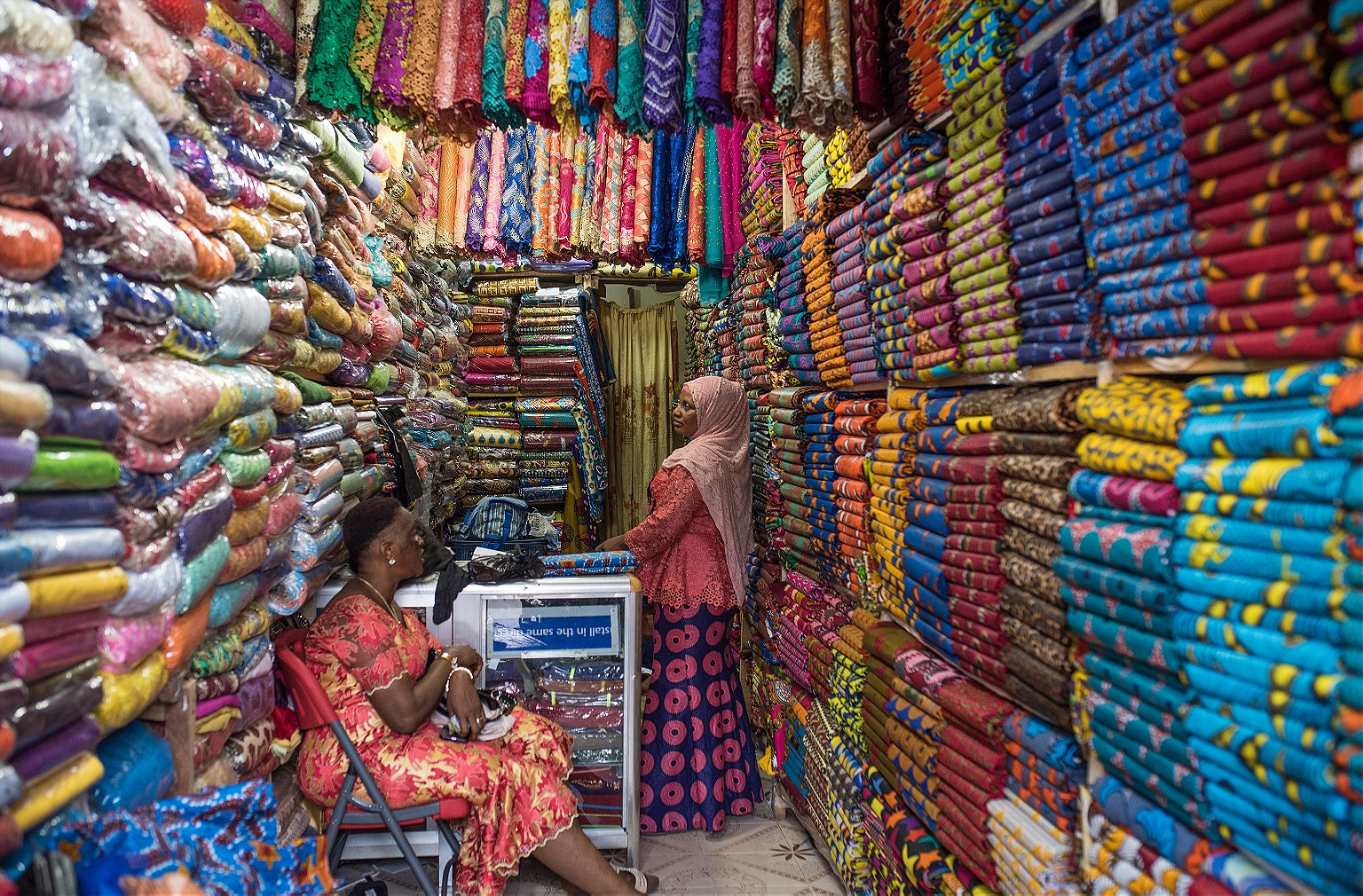
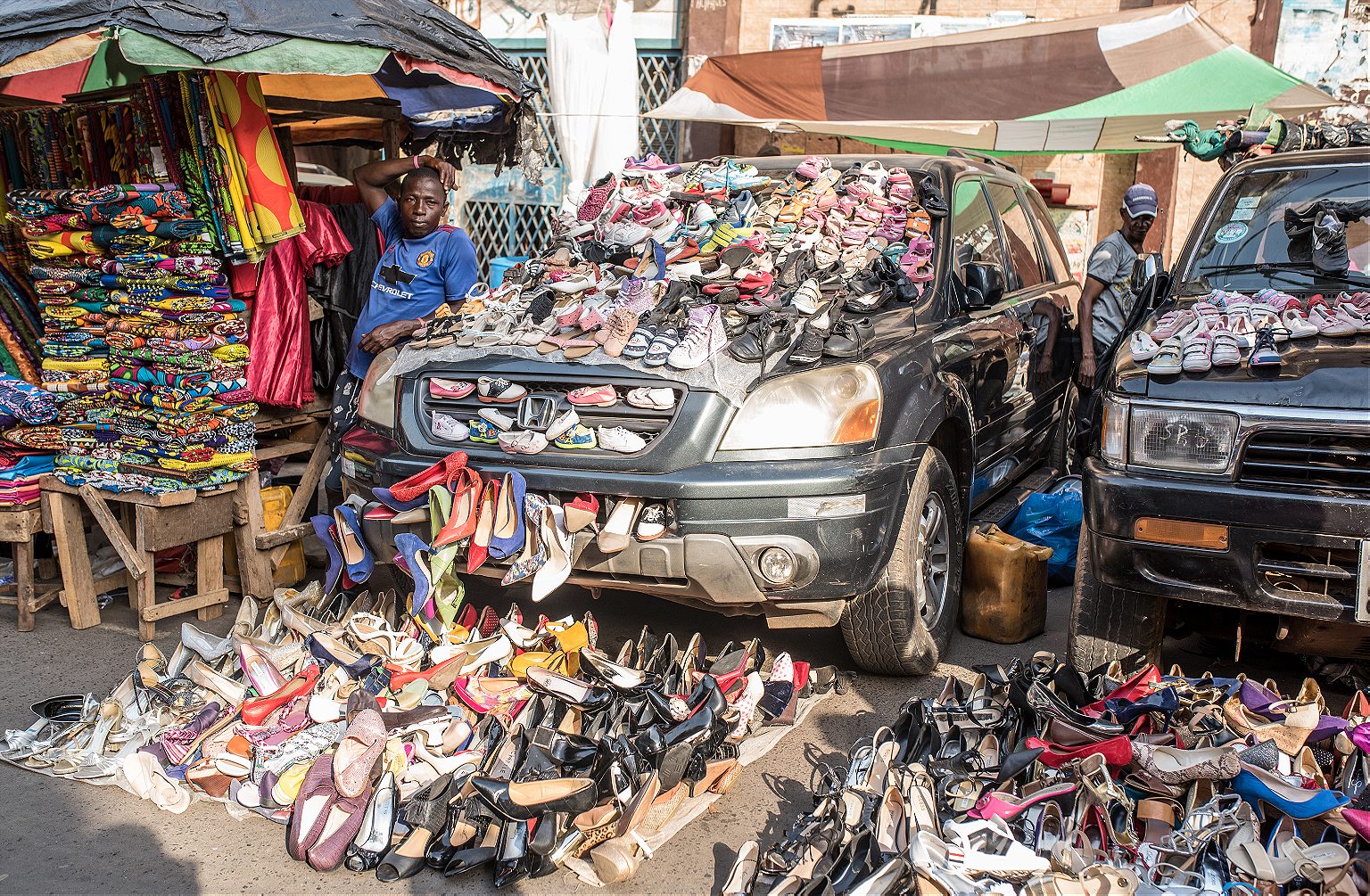

Get around by taxi. Shared taxis operate across the city in much the same way as Uber Pool, but offline. A taxi driver indicates he has space by beeping the horn; put your hand out and as they slow down and shout which direction you’re going, and the driver will stop and wave if your destination is on his route. A ‘one-way’ journey costs 1,500 leones (20 cents) but for further distances your driver might say ‘two, or even, three way’. The newly introduced kekes—three-wheel taxis—operate a similar system, though it’s slightly more expensive. If you want your own space, look out for an empty taxi and ask to ‘charter’. Around 25-35,000 leones (US$3-4) per hour is a widely accepted rate.
[Read: A long, expensive journey to the spring that forms the Niger River]

Bring your soccer boots. On Sunday afternoons, Lumley Beach is awash with games of beach football. Ask to join a game. Afterwards, head to a local panbodi (a tin or corrugated iron-sheet “pan”) cinema, which dot every square mile of the city. You can buy a soda and watch the European match of the day. If its Arsenal vs Manchester United the place will be packed, and the streets noticeably quieter—until someone scores a goal.
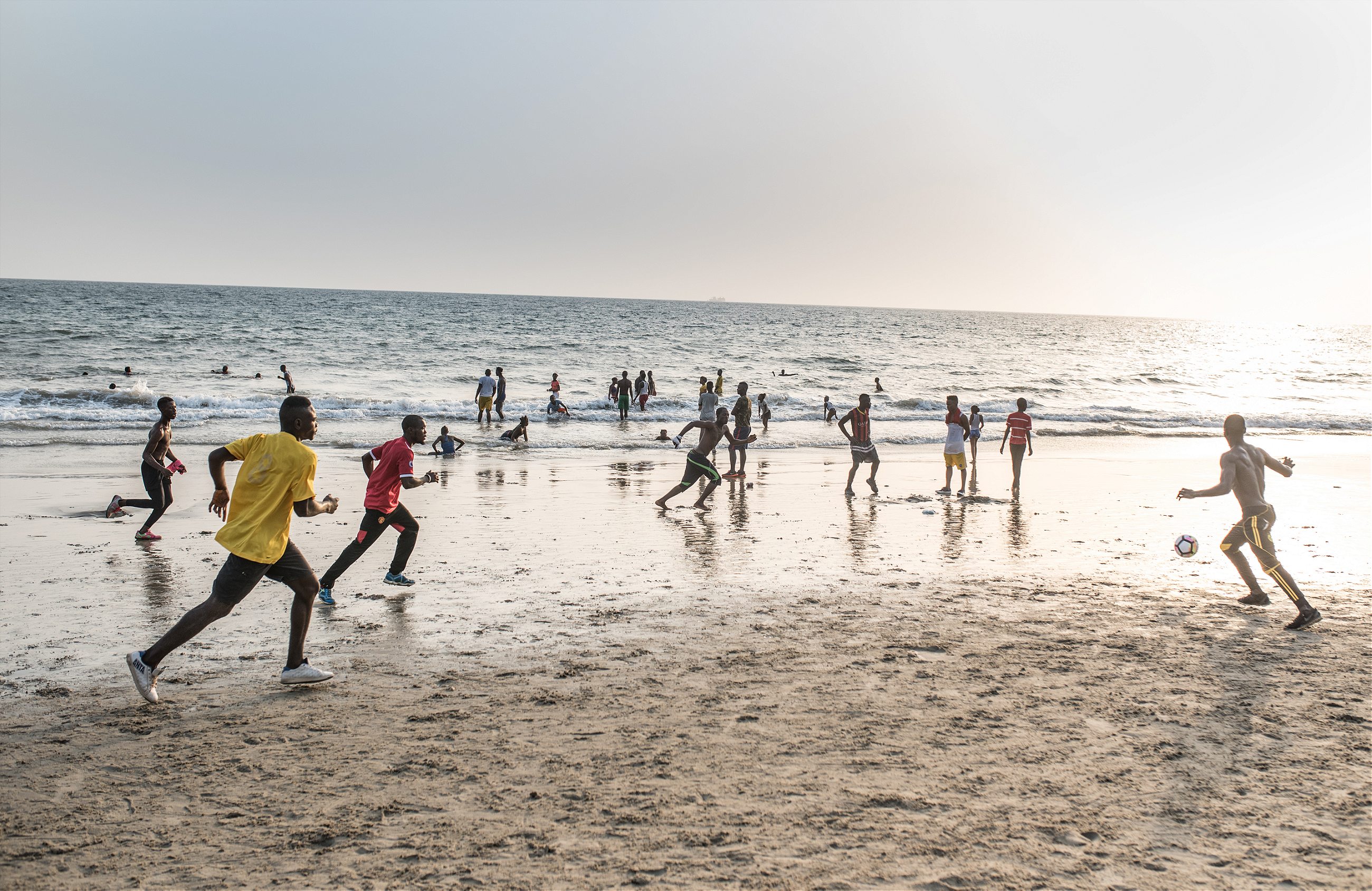

Get your morning caffeine hit. Ataya bases serve “ataya”, or strong, hot tea, to a mainly young, male clientele at roadside stalls across the city. They can be a place to talk about the challenging employment situation facing many younger residents, but you might soon find yourself being asked to help out with some money. These are also quite macho spaces. And be careful not to drink too much: the caffeine-heavy brew is a strong stimulant. (It might also not be the only stimulant on offer.) Note: a taya also means “I’m tired” in Krio.

Get a Sunday routine. The Lord rested on the seventh day. Freetown does not; it just slows down a little. From as early as 7.30 a.m., groups of smartly dressed people dot the quiet streets, waiting for public transport to take them to church. Services are packed, especially in the new evangelical churches that have sprouted up on every corner, with loud singing and clapping accompanied by even louder percussion instruments. You’ll be most welcome to attend, if you haven’t already been invited. After church the fun begins: there could be celebratory lunches or just-because dinners, fundraising events, or straight-up partying on any of the beaches along the city’s far-west peninsula late into the night. When everyone heads home at the same time, the traffic flows like chilled honey, so continue jamming in the car. Why worry? Didn’t you have a great Sunday?
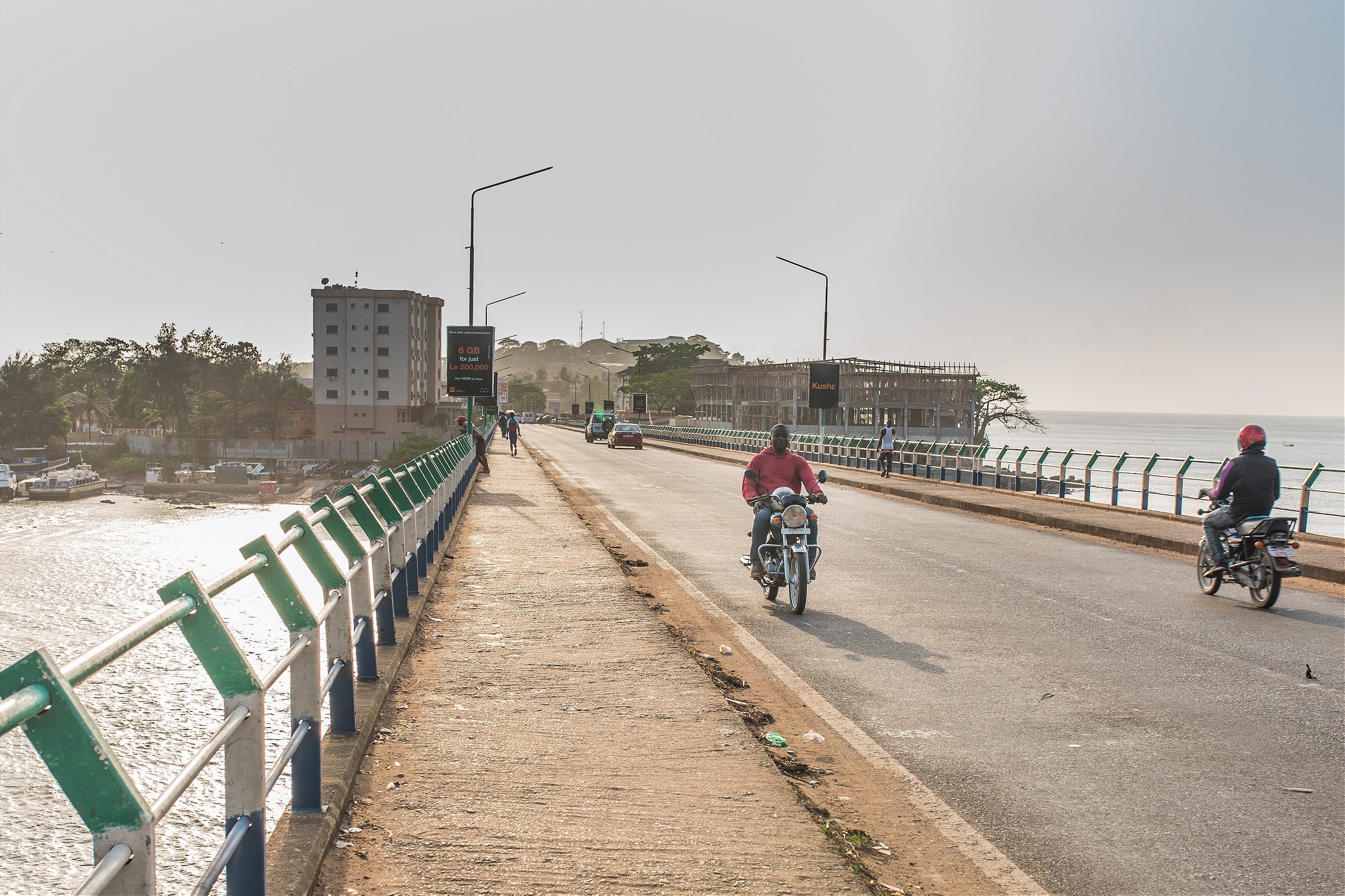

Listen to Emmerson. Musician Emmerson Bockarie has been a consistent thorn in consecutive Sierra Leone governments’ sides; his political music confronts corruption and underdevelopment. Once you have brushed up on your Krio, listen to “Munku Boss Pan Matches” or “Good Do”. If you still need help understanding, speak to residents of the city who will mostly be happy to talk about Emmerson’s songs. A ban preventing him from performing at the National stadium was lifted this year, so if you time your visit right you might even get to hear him in concert.

Read some Sierra Leone fiction. David Harris wrote an excellent guide to Sierra Leone political history, but if you’re looking for novels to read while relaxing on the peninsula’s beaches, read Aminatta Forna’s “Memory of Love.” Set in Freetown, it’s a wonderful and powerful account of love and longing stretched out over several decades of the countries turbulent recent history. Any of Yema Lucilda Hunter’s books are delightful trips into the country’s history, life, and culture.
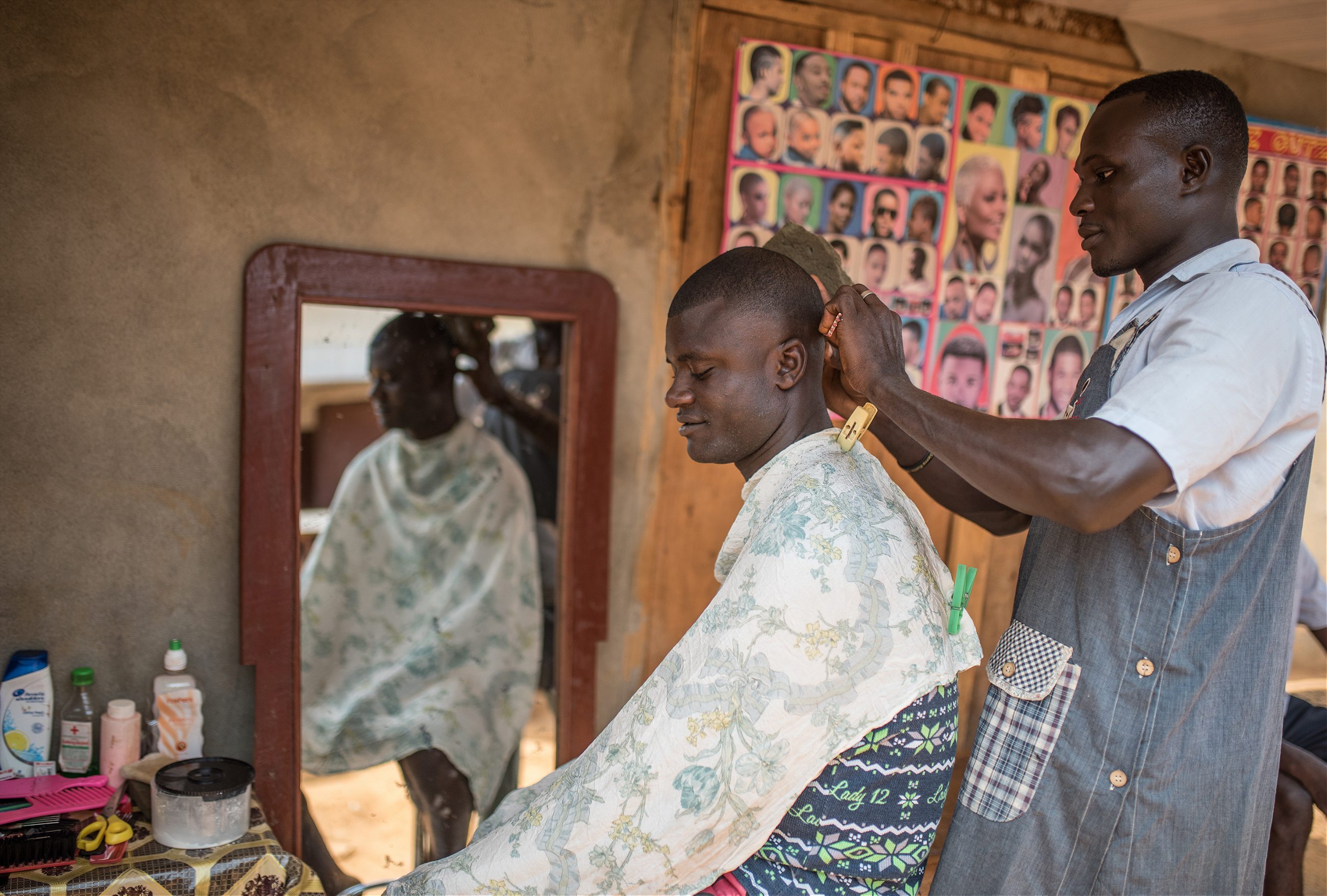

Get smart at Fourah Bay. West Africa’s oldest university, founded in 1827, sits at the top of Mount Aureol, with great views of the city’s east end. In its heyday, Fourah Bay drew students from across the region and southern Africa with its quality of teaching, earning Freetown the nickname Athens of West Africa. Two former heads of state were educated here, as was Christian Cole, a Sierra Leonean who became the first black student to study at the University of Oxford in 1873. It may no longer be an internationally renowned seat of learning, but spend some time in the grounds and soak up its historic importance.
Marvel at dem old bose ose. Ageing wooden houses, scattered across Freetown, are known as old bod os (“old board houses”). These are reconstructions of the homes built in the 18th century on the American eastern seaboard, and many are over a century old. Check out the Architectural Field Office’s “Journey without Maps” project, which maps the buildings’ locations around Freetown as part of a conservation effort. Their interactive map shows you were they are and also provides a little history about each.
Keep cool. Enjoy Sunday afternoon gelato at Gigibonta on Lumley Beach. After a walk along the beach you’ll be hot, so stop and enjoy the refreshment. Two scoops will set you back 30,000 leones (US$4) so it isn’t cheap, but the ice cream is great and it’s an excellent people-watching spot, particularly on Sundays when those who can afford it try to impress their dates over a scoop or two.
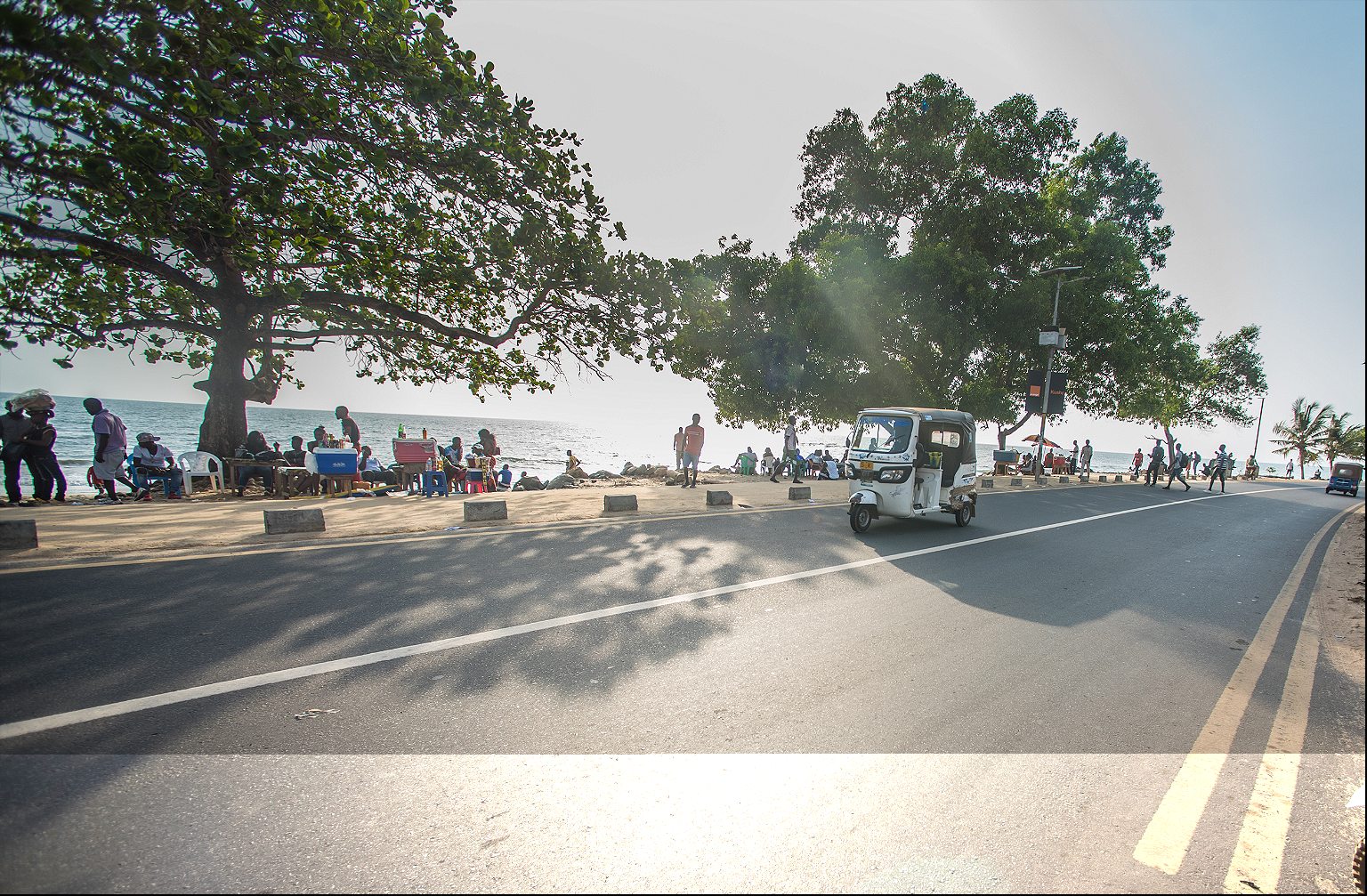
Escape the city. Further down the peninsula on which Freetown sits, there is a collection of white-sand beaches with green mountains in the background. Spend a night or two out here. Eat fresh seafood; lobster, crab, barracuda, and snapper for a fraction of the price you would normally pay. Lobster and chips at Cockle Point will set you back US$10. You can do yoga on a helipad some weekends at Tokeh Beach, enjoy a stroll along the beach at River Number 2, or surf at Bureh Beach.
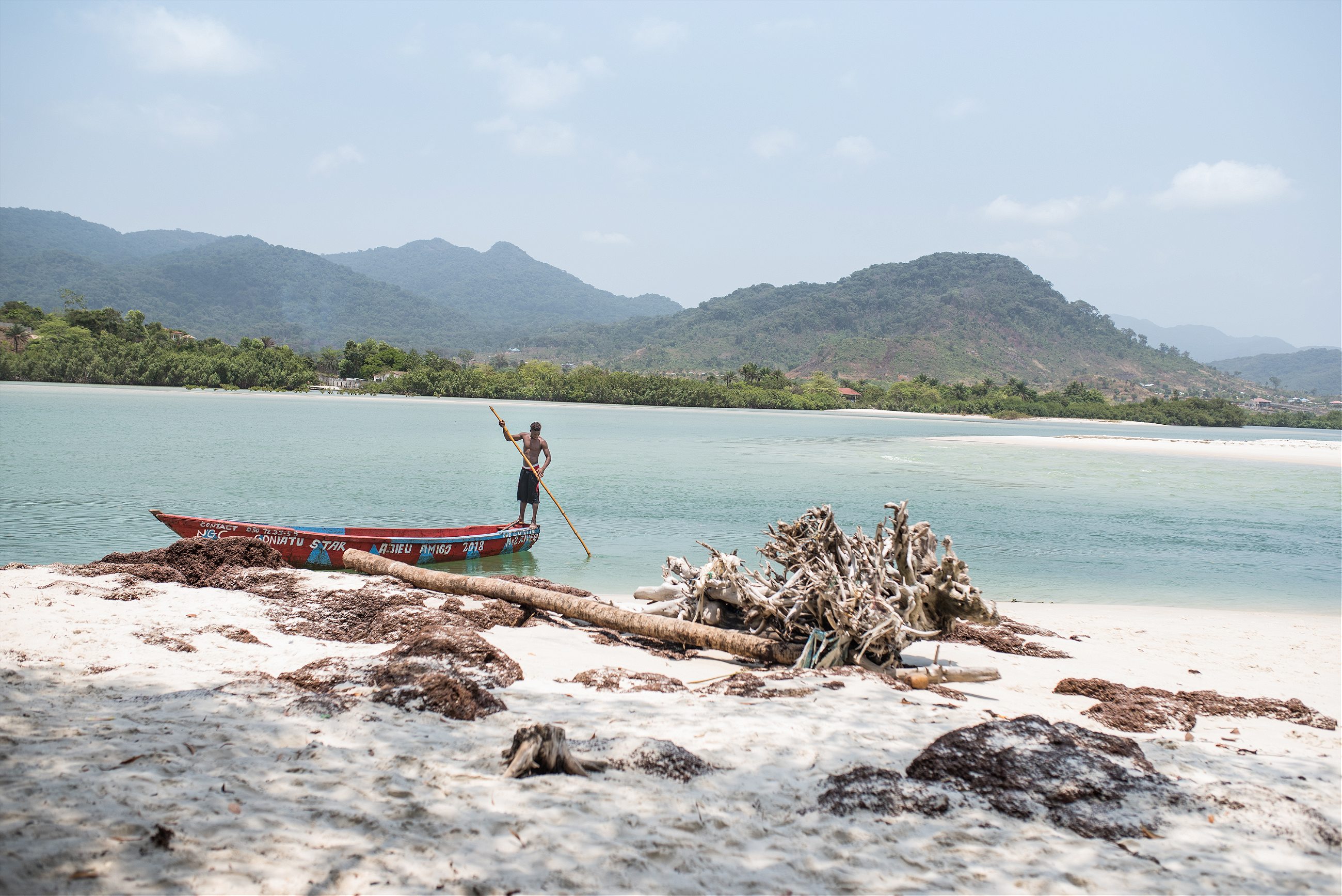

Surf. The west coast of Africa has some of the best and least-populated surf beaches in the world. Bureh Surf Club caters for all skill levels. You can hire a board for the day (US$25) and enroll in surf school (it’s a little more than US$10 for a lesson). If you brought your own board, just get out and enjoy the waves, but talk to the locals first about the best spots; the current is very strong and needs to be carefully navigated. Di waves dem go mek yu fil fayn!

Shop smart. Beach vendors or stalls along central Freetown streets will entice you carvings, paintings, batik, and jewelry, but instead, head to the two-story Big Market, the renovated 19th-century building overlooking the area where the first freed slaves landed. Sellers throw in extra gifts to seal the deal; do not reject them. This is the best spot for last-minute souvenirs.
